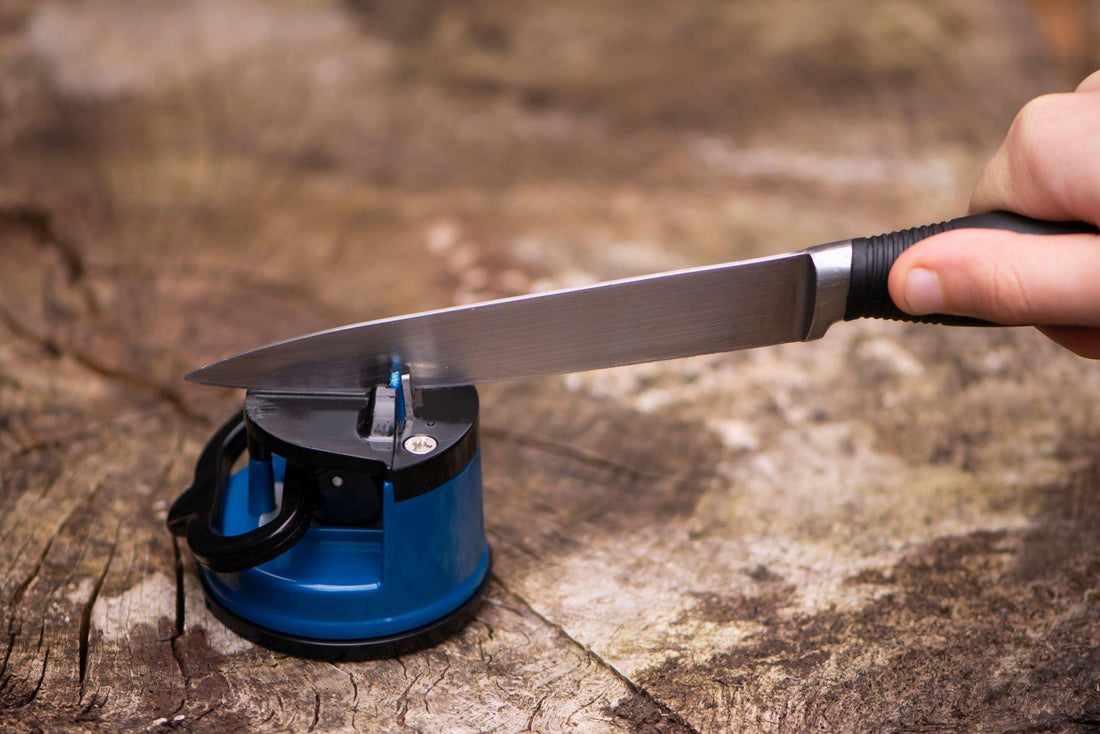
Why Are Sharp Knives Safer Than Dull Ones?
Share
As any cook will tell you, a sharp knife is safe. It might seem counterintuitive – after all, a sharp blade can do more damage than a dull one, right? – but it's the dull knives that are more dangerous.
A dull knife requires more force to use. It means you're more likely to slip and cut yourself when trying to chop something up. A sharp knife, however, will glide through whatever you're cutting with minimal effort. So, there you have it: sharp knives are safer than dull ones. So next time you're in the kitchen, ensure your knives are nice and sharp – it could save you from a nasty accident.
Why Are Sharp Knives Generally Considered Safer Than Dull Ones?
Most people think sharp knives are more dangerous than dull ones because they can cause more severe cuts. However, dull knives are more dangerous than sharp ones because they are more likely to cause accidents. In addition, sharp knives are easier to control because you can feel when they are about to slip, and you can adjust your grip accordingly. On the other hand, dull knives are more likely to slip because you can't feel when they are about to slip, and you are more likely to cut yourself.
For example, imagine you are slicing a tomato with a dull knife. The knife is more likely to slip, and you are more likely to cut yourself than if you used a sharp knife. The same is true for other activities, such as carving meat or chopping vegetables. It is much easier to control a sharp knife than a dull one.
How Can A Sharp Knife Be Used Safely?
A sharp knife is a kitchen staple that can make food preparation quicker and easier. However, with this convenience comes a responsibility to use the knife safely. Here are some tips for how to safely use a sharp knife:
Choose the right knife. When selecting a knife, ensure it is the right size and shape for the task. A larger knife is not always better – a smaller, more manoeuvrable knife can be safer. Keep the knife sharp. A sharp knife is safer than a dull one because it requires less force to cut through food. However, a sharp knife is also more likely to slide through food rather than get stuck, which can cause accidents.
Use a cutting board. Always use a cutting board when cutting food with a knife. It will help protect your countertops and keep your fingers safe. Grip the knife correctly. When gripping the knife, ensure your fingers are behind the blade, not in front. It will help prevent accidental cuts. Cut away from your body.
Always cut food away from your body, not towards it. It will help reduce the risk of accidental cuts and injuries. By following these simple tips, you can safely use a sharp knife in the kitchen.
Edge retention is another essential factor to consider when choosing a knife. Carbon steel knives are known for their excellent edge retention, but Carbon steel is a rigid material, giving it excellent edge retention. However, other materials, such as ceramic, have even better edge retention. Carbon steel knives will hold their edge for longer, but they will eventually need to be sharpened.
Why Is It Important To Keep Knives Sharp?

It is important to keep knives sharp for many reasons. For one, sharp knives are much safer to use than dull knives. A flat blade requires more force, which increases the likelihood of an accident.
Sharp knives are also more efficient. A dull blade will require more sawing motions to cut through something, which takes more time. A sharp knife will make clean, precise cuts quickly and easily.
Finally, sharp knives are simply more pleasant to use. Cutting with a dull knife can be frustrating and ruin the texture of whatever you're cutting. On the other hand, a sharp knife will make light work of whatever you're missing, whether it's a challenging piece of meat or a delicate vegetable.
There are a few different methods you can use, depending on what type of knife you have and how often you use it. For instance, if you have a ceramic knife, you'll need to use a different method than a steel knife.
The most important thing is to use a sharpening tool designed for your type of knife. There are various sharpening tools on the market, so do some research to find the one that's right for you.
Once you have the right sharpening tool, it's simply a matter of following the instructions. You'll generally want to sharpen your knives every few weeks, depending on how often you use them.If you take care of your knives, they'll take care of you. You can keep your knives sharp and in good condition with a little effort for years.
Last Thought
Sharp knives are safer than dull knives because they are less likely to slip and cause an accident. If you still need clarification, feel free to ask the questions below.
Dull knives are more dangerous than sharp ones. It's easy to slip and cut yourself when cutting something with a dull knife, whereas a sharp knife will make a clean cut.
